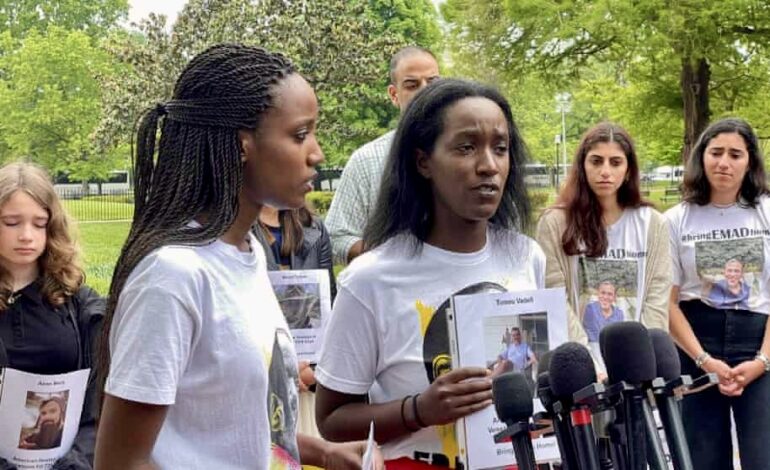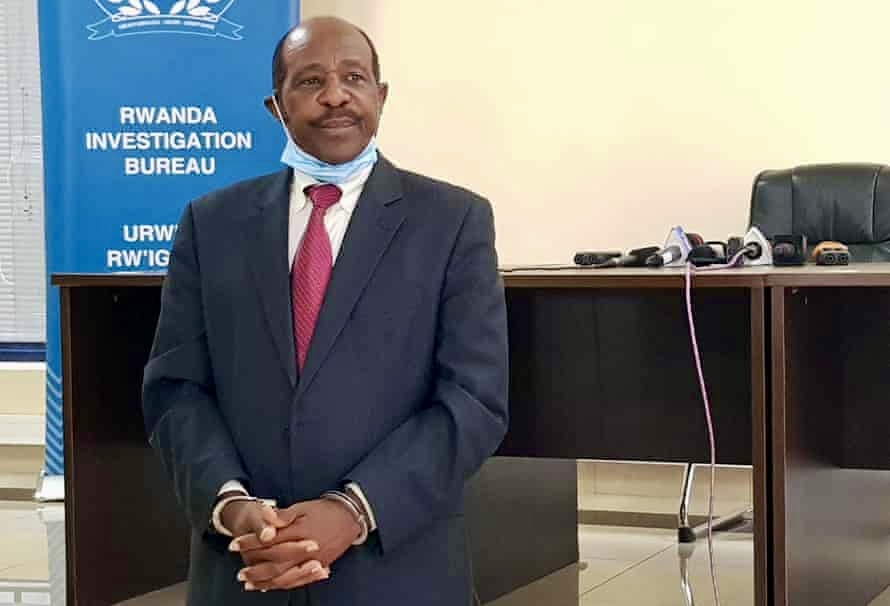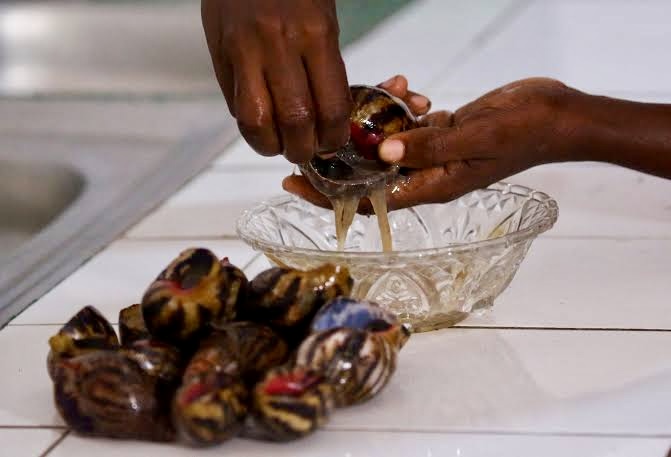
Faith Nyasuguta
Carine and Anaïse Kanimba (Pictured), the daughters of Paul Rusesabagina, the individual who inspired the Oscar-nominated film Hotel Rwanda, assert that the Rwandan legal system lacks the capability to safeguard refugees sent from the UK.
These sisters, who dedicated over two years to securing their father’s release, successfully achieved his freedom from a Kigali jail earlier this year after three years of imprisonment. Their firsthand experience provides detailed insights into the inherent shortcomings of the Rwandan legal system.
Paul Rusesabagina, a former hotelier, gained acclaim for saving over 1,200 lives during the 1994 genocide against the Tutsi, a heroic narrative depicted in the 2004 Hollywood movie Hotel Rwanda.
UK ministers are poised to introduce proposals aimed at bolstering protections in government plans for the automatic deportation of refugees entering the UK illegally to Rwanda.
This comes in response to the supreme court’s recent declaration that the scheme was unlawful due to inadequate assurances preventing the return of deportees to countries where they face persecution.
Ministers are set to elevate a 2022 memorandum of understanding with Rwanda into a legally binding treaty. Home Secretary James Cleverly expressed confidence in Rwanda’s readiness to accommodate thousands of people, process their claims, provide excellent care, and support their integration. He highlighted Rwanda’s potential and promise as an African nation.
However, Anaïse Kanimba contested this assertion, emphasizing that her father’s trial exposed the Rwandan justice system’s deficiencies in basic fair-trial protections and due process. She characterized Rwanda as a dictatorship where the president serves as both judge and authority in the court of law.

“The justice system is not independent; it is used as a tool to further oppress people who are not in agreement with what the regime does. If refugees were to appeal against being mistreated in Rwanda, for instance, the last thing they should expect is fairness and due process.”
“In our father’s trial, we also saw how the co-accused were abused by the government. In the trial, many complained of being hungry or having been mistreated when they were able to speak in court. Rather than being concerned about this, or even asking for further information on the mistreatment of defendants, the judges rushed to shut down their submissions.”
She contested the UK government’s assertion that Rwanda could enhance its procedures with the assistance of UK Home Office monitors, highlighting that substantial training and international aid had already been invested in Rwanda’s justice system.
She expressed concern that judges appeared influenced by the Rwandan president’s preferences.
This perspective aligns with an April 2022 Foreign Office memo titled “Review of Asylum Processing: Rwanda,” presented to the high court.
The unnamed author acknowledged Rwanda’s contradictions and emphasized that its legal system lacked independence, was regularly interfered with, and politicized. Opposition or political cases, according to the memo, did not receive fair trials or adequate support.
To emphasize this argument, the sisters assert that their father’s release was not a result of a well-considered judgment by Rwanda’s legal system but rather stemmed from persistent external pressure.
This pressure included the threat of sanctions specifically targeting Johnston Busingye, the longtime Rwandan justice minister, who is now Rwanda’s high commissioner to London.
In June 2021, the Lantos Foundation, a US campaign group, attempted unsuccessfully to seek sanctions from the US State Department against Busingye. Subsequently, on September 1, just days before Rusesabagina was sentenced to 25 years, Busingye was appointed as Rwanda’s new envoy to London.
Rusesabagina was convicted by the court for moving beyond mere criticism of the regime to supporting a rebel group responsible for deadly attacks in 2018 and 2019 in northern and southern parts of Rwanda.
The daughters expressed criticism of Busingye’s role in their father’s case, although he defended his position. His planned appointment raised concerns from two MPs, but the Foreign Office ultimately cleared it in March 2022, one month before the UK-Rwanda asylum partnership memorandum was published.
The Home Office, relying on desk-based research and two brief visits in January and March 2022, concluded that Rwanda was safe for asylum seekers, contradicting a Foreign Office official.
Surprisingly, the two Home Office fact-finding visits coincided with a UN working group publishing a report condemning Rusesabagina’s treatment during his imprisonment. The report outlined instances of him being drugged, mistreated in jail, and being denied a lawyer of his choosing.
The trial gained global attention and was deemed self-evidently “illegal” by the Clooney Foundation, led by lawyer Amal Clooney and her husband, George Clooney. Rusesabagina eventually refused to participate in the trial process.
Anaïse Kanimba contends that the evidence reviewed by the supreme court regarding Rwanda’s asylum procedures, coupled with her father’s treatment, demonstrates that fundamental principles of judicial fairness cannot thrive in Rwanda and cannot be imposed on a country through a treaty signed in the UK in exchange for financial considerations.
“There can be no oversight or accountability, since Rwanda is a dictatorship,” she said.
RELATED:




